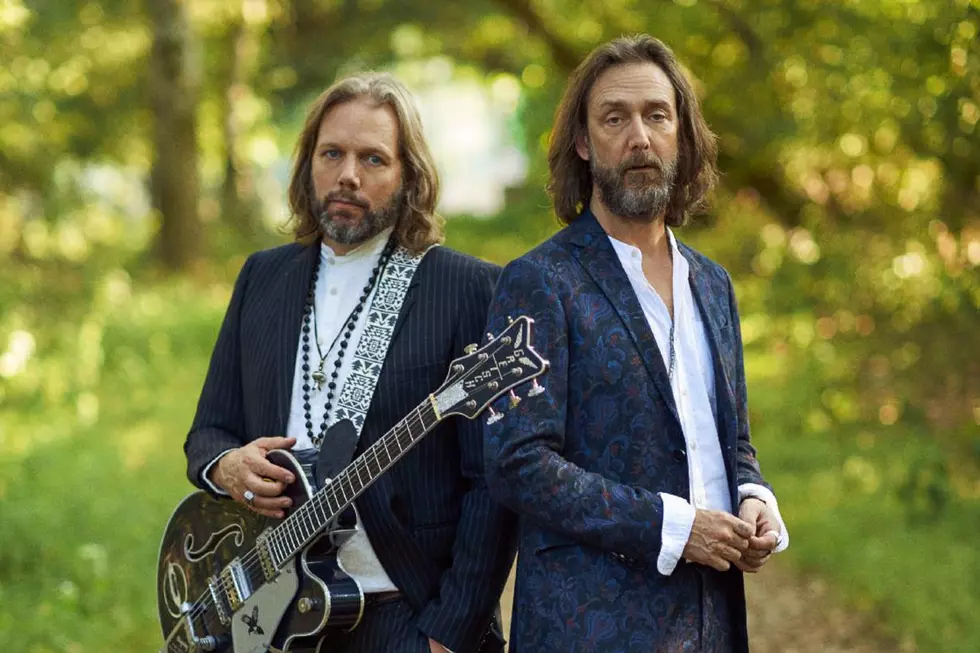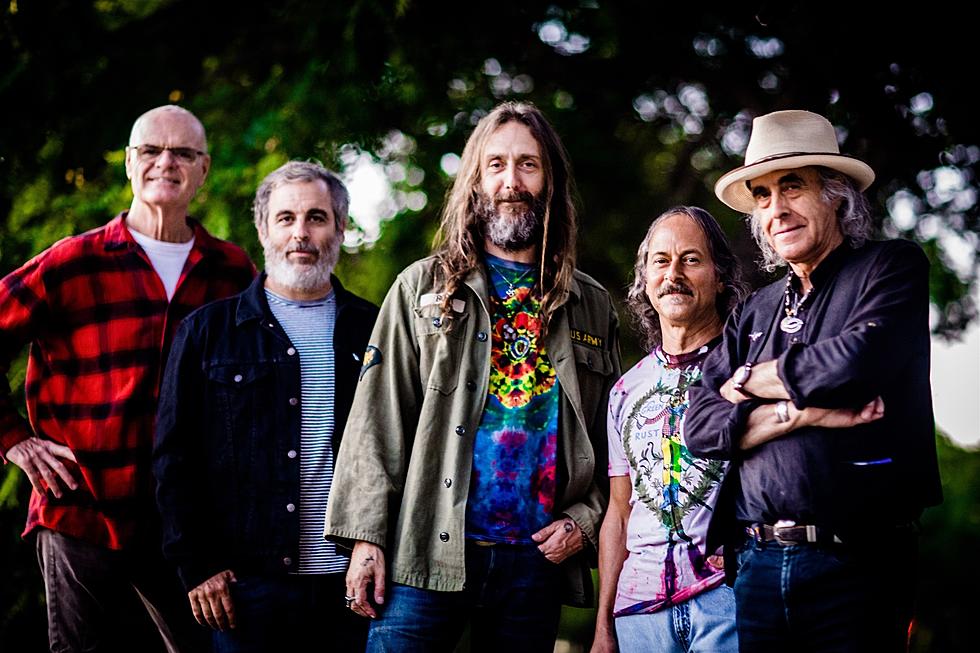
Black Crowes Revisit Their Roots With ‘1972’ EP: Interview
Chris and Rich Robinson were schoolchildren in 1972, growing up in the suburbs of Atlanta and still years away from their global success as the Black Crowes. Yet, that period would leave a profound impact on their musicianship, songwriting, and overall attitude toward their work.
Like many artists of their generation, the Robinsons fell in love with the legends of the '60s and '70s: As kids, their dad would frequently play records by Bob Dylan, Sly Stone, Crosby, Stills, Nash & Young, the Who, and Joe Cocker, among others. As the years went on, and they began growing into their own identities, Chris and Rich kept following the trail, listening to albums by the likes of Prince, the Clash, Sex Pistols, Dead Kennedys and more, somehow arriving back where they had started – in Georgia, with R.E.M.
"I remember where I was the first time I heard 'Radio Free Europe,'" Rich tells UCR, "and there was something about the guitars and the tone, and their presentation of their experience in the South and what it meant to them. ... Chris and I grew up and we aligned with R.E.M.'s version of this: It was beautiful, it was organic, it was subtle and soft in a weird way."
They investigated various music scenes in Athens, Ga., Chapel Hill, N.C., plus parts of California and the Paisley Underground movement of the mid-'80s, where the music of Dylan, the Byrds, Neil Young, the Velvet Underground and the Rolling Stones brought them full circle to their roots.
"We went through this whole thing to come back to our desired springboard of expression, which is rock 'n' roll music," Rich says.

When the Black Crowes released their debut album, Shake Your Money Maker, in 1990, those who were unaware of the brothers' ages might have assumed they were older musicians. The LP immediately drew comparisons to '70s rock, sometimes being described as "retro" sounding. That moniker was at first something of a compliment but occasionally took on a more negative connotation. "The Black Crowes are to the early Rolling Stones what Christian Slater is to the young Jack Nicholson," a 1991 article titled "The Death of Rock" read, "a self-conscious imitation, but fine enough in its own right."
Mathematically it made sense: The music industry was only two decades removed from the top of the '70s at the time of Shake Your Money Maker's release. To the Robinsons, the Black Crowes were simply continuing the tradition of rock 'n' roll as others before had done. "It's just music; it's just expression," Rich says. "It's what resonated with us."
Chris adds: "By the way, a few years later, Green Day [wore] Creepers and they looked punk, but they're not retro. I always thought that was fucking stupid. I get it, 'Oh, punk is cool. Bell-bottoms aren't cool.'"
Inside the Sessions for the Black Crowes' '1972' EP
The Black Crowes still don't pay attention to whether or not bell bottoms are cool. They're revisiting those roots even more directly with a new EP called 1972, featuring six covers of songs released during that momentous year. Due on May 6, 1972 runs the gamut from David Bowie's "Moonage Daydream" to Little Feat's "Easy to Slip."
The idea for the project, completed in partnership with Amazon music, had been floating around for a few months. Once the song choices were narrowed down — a process Rich modestly describes as "tough" — they headed into Sunset Sound Studios in Los Angeles, where the likes of the Doors, Led Zeppelin, Janis Joplin, Tom Petty and dozens of other high profile rock acts have recorded.
It was the first time both brothers had been together in a studio in many years. Also present was the band's longtime bassist Sven Pipien, who rejoined the lineup last year. (Former Black Crowes drummer Steve Gorman recently filed a lawsuit against Chris and Rich for alleged unpaid royalties and did not participate. The brothers have not commented on the matter.) Their schedule shifted when Rich came down with COVID-19, but otherwise, the recording experience mostly felt just like old times. Rich had already tracked several of his parts and also recorded more from his at-home studio.
"It's natural. We grew up doing this. I mean, the first time I went in the studio, I was 15," Rich says. "Everything with us — there's not a lot of planning. It's all just more how we feel ... because we are a band and we can go in and just knock it out. There doesn't have to be a semi-trucks worth of computer programmers — just plug in your amp, play the song, you get out."
Rock music, Rich argues, is still "viable and valid" today. On 1972, the Crowes once again focused on recording music that was authentic to themselves, honoring influences without sacrificing their style.
"I don't want to sound cliche, but it truly is a love letter to this music that has inspired us and that we feel contains so much magic," Chris says. "There's gonna be some person out there who doesn't know 'The Slider,' who's never really heard 'Papa Was a Rollin' Stone.'"
As Chris puts it, the songs on 1972 are examples of the kind of music that acted as a "vehicle" for the creation of Shake Your Money Maker all those years ago. Decades later, the Black Crowes are still unafraid to wear their influences on their sleeves.
"We wanted to approach it and we wanted to inevitably get into this session with just all the love in the world for this music," Chris says, "and if we can blow some life into it and find the little spots in it here and there to make it the Black Crowes, then that's what it's about."
25 Under the Radar Albums From 1972
More From US 103.1 FM










